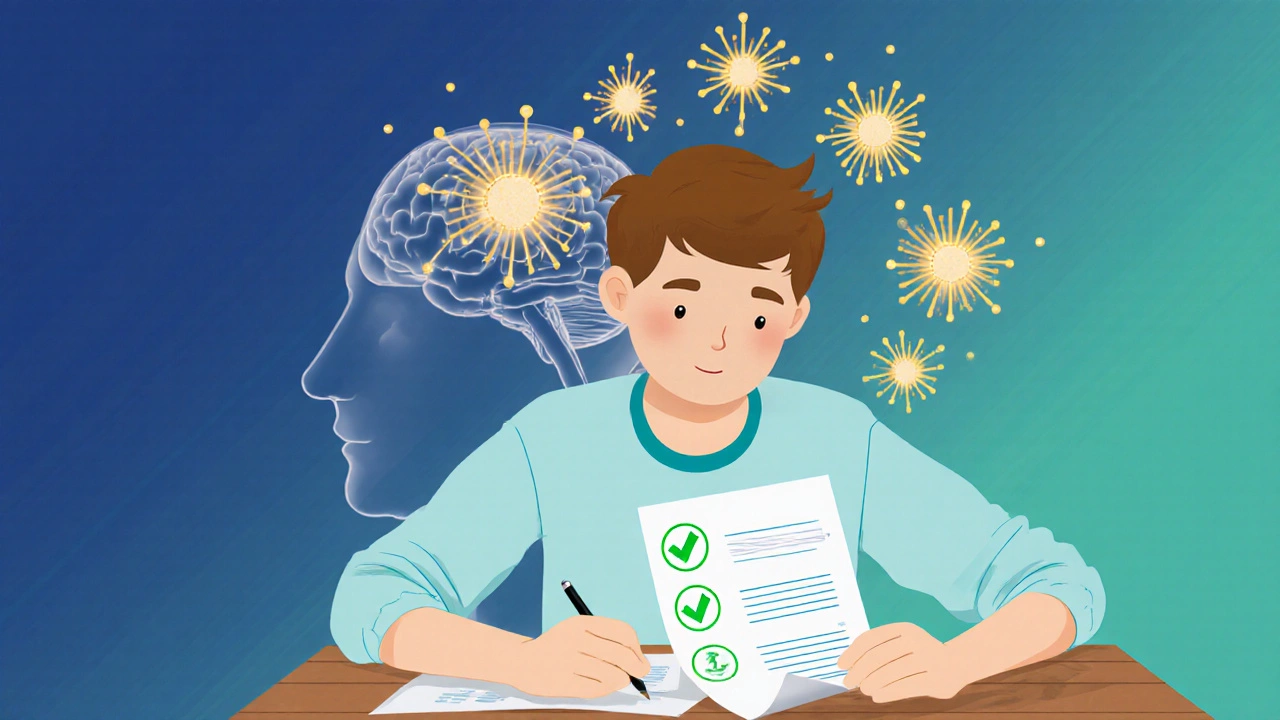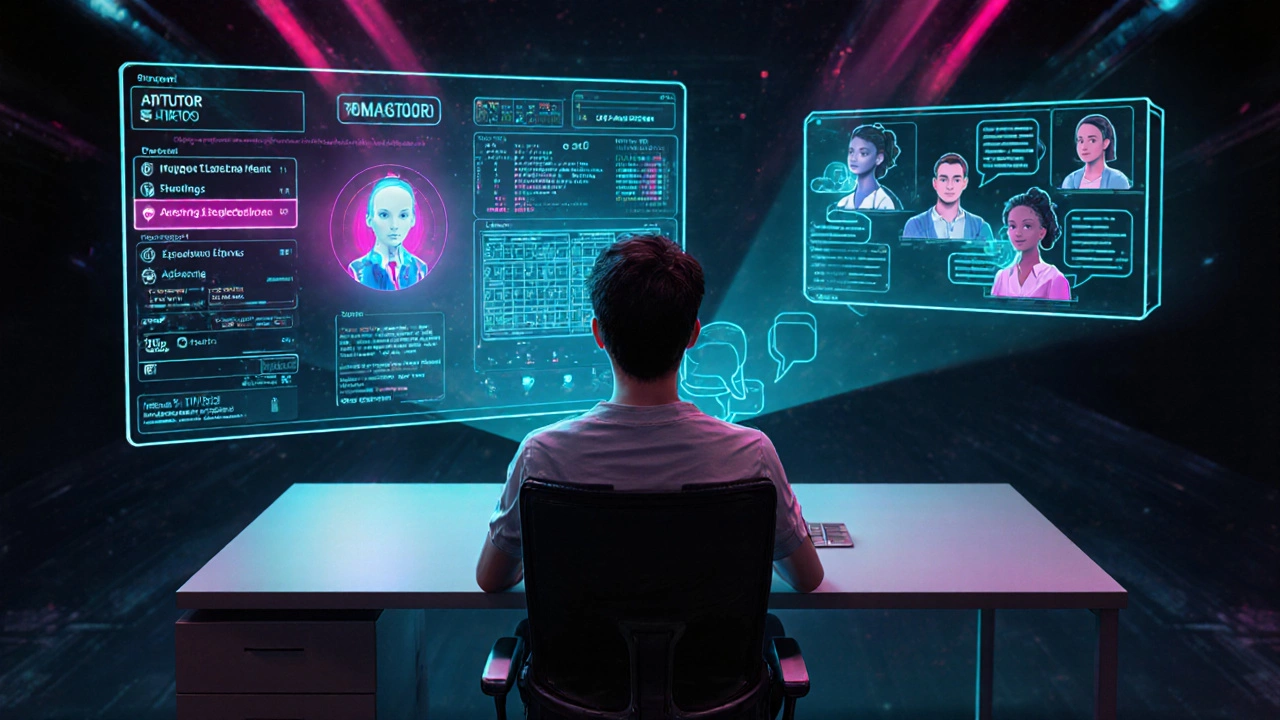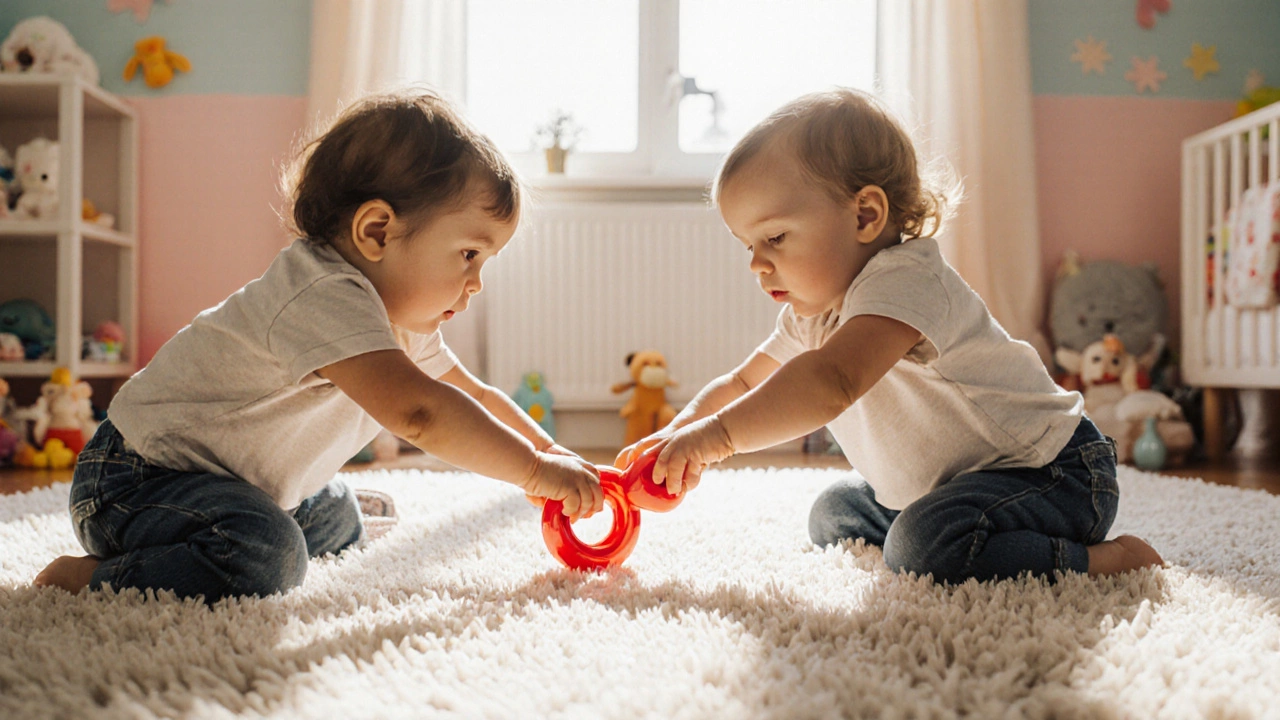Motivation Balance Calculator
Optimize Your Study Approach
Based on evolutionary psychology and social comparison theory, find your ideal balance between competitive drive and cooperative learning.
Your Balance Assessment
Ever watched two toddlers reach for the same rattle and notice the instant tug‑of‑war? That split‑second scramble isn’t just a cute moment-it’s a window into a deep‑seated drive that shapes schooling, sports, and even the way we tackle competitive exams.
Quick Takeaways
- Human competitiveness is rooted in evolution but modulated by culture and personal experience.
- Both competition and cooperation are hard‑wired; the brain flips a switch based on context.
- Key psychological theories-like Social Comparison Theory-explain why we measure ourselves against others.
- Neurochemicals such as dopamine light up when we win, reinforcing competitive behavior.
- Understanding these forces can boost exam performance by turning pressure into motivation.
What "Human Competitiveness" Really Means
Human competitiveness is a psychological tendency to strive for advantage over peers, seeking status, resources, or recognition. It’s more than just wanting to be first; it’s a blend of ambition, comparison, and reward anticipation that appears across ages and cultures.
Evolutionary Psychology: The Origin Story
The story begins millions of years ago when early humans competed for food, shelter, and mates. Evolutionary psychology studies how ancient survival challenges shaped modern mental traits argues that competition boosted gene propagation. Those who out‑performed rivals gained better nutrition and safer environments, leaving a genetic imprint that still influences us today.
Nature vs. Nurture: How Much Is Learned?
While evolution set the stage, upbringing rewrites the script. Nature vs. nurture debates the relative contributions of genetics and environment to behavior shows that a supportive classroom can soften aggressive urges, whereas high‑pressure homes may amplify them. In exam prep, this means a balanced study plan can channel competitive drive into productive effort rather than anxiety.
Social Comparison Theory: The Mirror Effect
Developed by Leon Festinger, Social comparison theory suggests people evaluate themselves by comparing with similar others. When you glance at a classmate’s test score, your brain automatically benchmarks your own performance. This comparison can ignite a healthy push to improve-or trigger harmful self‑doubt if not managed.

The Brain’s Reward System: Dopamine’s Role
Winning a point in a practice quiz releases Dopamine a neurotransmitter linked to pleasure and motivation. The surge creates a feedback loop: the more you succeed, the more you seek competitive scenarios. Understanding this chemistry helps exam candidates set up mini‑rewards-like a short break after mastering a tough topic-to keep dopamine flowing and motivation high.
Game Theory: Strategy Meets Competition
In economics and biology, Game theory models strategic interactions where outcomes depend on multiple decision‑makers provides tools to predict competitive behavior. A classic example is the “Prisoner’s Dilemma,” where cooperation can beat pure self‑interest. For exam takers, this translates into collaborative study groups that balance competition with shared success.
Cooperation vs. Competition: A Direct Comparison
| Dimension | Competition | Cooperation |
|---|---|---|
| Primary motivation | Winning, status, personal gain | Shared goals, mutual benefit |
| Evolutionary advantage | Securing scarce resources | Group survival, resource pooling |
| Brain chemistry | Dopamine spikes on victories | Oxytocin release strengthens bonds |
| Typical outcome | Winner‑takes‑all scenarios | Collective progress, shared reward |
Both modes coexist. In a competitive exam setting, you might sprint to beat a deadline (competition) while also joining a study circle that shares notes (cooperation). Knowing when to toggle between them maximizes performance.
Competitive Exams: A Real‑World Laboratory
Competitive exams standardized tests that rank candidates for academic or job opportunities like the IIT JEE, GRE, or civil service exams turn abstract drive into measurable scores. Preparation materials often exploit our competitive instincts-leaderboards, timed challenges, and rank‑based feedback-to keep learners engaged.

Practical Tips to Harness Your Competitive Edge
- Set personal benchmarks. Instead of constantly eyeing classmates, define clear, incremental score goals.
- Use micro‑rewards. Celebrate small wins with a snack or a short walk; this triggers dopamine without derailing study flow.
- Mix competition with collaboration. Pair up for mock tests, then discuss solutions together. This blends game‑theoretic strategy with cooperative learning.
- Mind the stress signals. Elevated cortisol can impair memory. If you feel anxiety climbing, practice breathing or a quick meditation.
- Reflect on cultural influences. Some societies prize collective achievement over individual glory. Align your study mindset with your cultural values for smoother motivation.
Common Pitfalls and How to Avoid Them
When competitiveness goes unchecked, it can backfire. Over‑comparison leads to imposter syndrome; excessive rivalry may cause burnout. Recognize warning signs-sleep loss, irritability, or chronic self‑criticism-and intervene early with balanced schedules and supportive peers.
Future Directions: Will Competition Evolve?
As AI tutors and adaptive learning platforms become mainstream, the nature of competition may shift from human‑vs‑human to human‑vs‑algorithm. Yet the core drive-wanting to be better than a benchmark-will likely remain, guiding how we set goals in a digital age.
Frequently Asked Questions
Is competitiveness innate or learned?
Both. Evolutionary psychology shows a genetic foundation, while cultural norms and personal experiences shape how that drive expresses itself.
Can too much competition hurt exam performance?
Yes. Excessive stress raises cortisol, which interferes with memory consolidation. Balance competition with rest and cooperative study.
How does dopamine affect studying?
Dopamine spikes when you achieve a goal, reinforcing the behavior. Use small, frequent milestones to keep dopamine flowing and stay motivated.
What role does culture play in competitiveness?
Cultures vary in emphasizing individual achievement versus collective success. Understanding your cultural background helps you align study strategies with your intrinsic motivators.
Should I join a study leaderboard?
If you thrive on competition, a leaderboard can boost effort. If it triggers anxiety, opt for private progress tracking instead.

